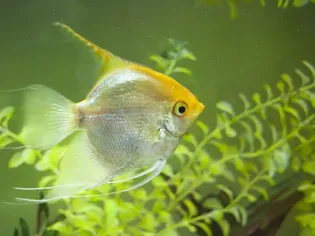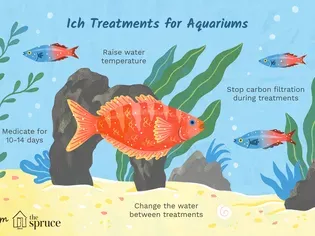What Is the Best Water Temperature for Betta Fish?
Updated on 05/26/24

Unveiling the Secrets of Betta Fish Temperature: A Comprehensive Guide
Introduction
Betta fish, renowned for their vibrant colors and unique personalities, require meticulous care to thrive in an aquarium environment. Understanding the ideal water temperature is paramount to their well-being and longevity. This comprehensive guide delves into the intricacies of water temperature for betta fish, providing a solid foundation for their optimal health.
Optimal Temperature Range
The optimal water temperature range for betta fish is between 78°F (25.6°C) and 82°F (27.8°C). This range allows betta fish to maintain their metabolic functions, promote healthy growth, and exhibit natural behaviors.
Maintaining Stable Temperature
Consistency in water temperature is crucial for betta fish health. Fluctuating temperatures can cause stress, weaken their immune systems, and make them susceptible to diseases.
Consider the Ambient Temperature
The ambient temperature of the room where the aquarium is located should be within the optimal range for betta fish. If the ambient temperature is too low, a heater may be necessary to maintain the desired water temperature.
Monitoring Water Temperature
Regularly monitoring water temperature using a reliable thermometer is essential. This ensures that the temperature remains within the optimal range and allows for timely adjustments if necessary.
Example: Heater Usage
During the colder months or if the ambient temperature is consistently below the optimal range, a heater may be necessary to maintain the desired water temperature for betta fish. Submersible heaters are commonly used and allow for precise temperature control.
Effects of Incorrect Temperature
Too High Temperature:
* Increased metabolism and oxygen consumption
* Stunted growth
* Reduced appetite
* Weakened immune system
* Increased susceptibility to diseases
Too Low Temperature:
* Slowed metabolism and reduced activity
* Reduced appetite
* Increased susceptibility to diseases
* Lethargy and impaired immune function
Signs of Temperature Stress
* Rapid breathing
* Swimming erratically
* Reduced activity level
* Loss of appetite
* Color fading
* Lethargy
Consequences of Prolonged Temperature Stress
Prolonged exposure to incorrect water temperatures can lead to severe health consequences for betta fish, including:
* Organ damage
* Reduced lifespan
* Increased susceptibility to diseases and infections
* Impaired immune function
* Stress and anxiety
Additional Considerations
Acclimating New Fish:
When introducing new betta fish to an established aquarium, it is crucial to acclimate them to the new water temperature gradually over several hours. This helps reduce stress and prevents sudden changes in temperature.
Water Changes:
During water changes, ensure that the new water is at the same temperature as the aquarium water to avoid temperature fluctuations.
Conclusion
Understanding and maintaining the appropriate water temperature for betta fish is fundamental to their well-being and longevity. By adhering to the optimal range of 78°F to 82°F, monitoring temperature regularly, and considering the ambient temperature, you can provide a thriving environment for your prized betta fish. Remember, consistent and correct temperature ensures their optimal health, vibrant colors, and active behaviors.
Explore More Pets

Freshwater Aquarium Filters
How to Deal With Cloudy Aquarium Water

Saltwater Aquarium Filters
How Do You Remove Chloramines From Tap Water?

Freshwater Aquariums & Habitat
Can I Keep My Koi Fish Inside?

Saltwater Aquariums & Habitat
14 Best Floating Plants for Your Aquarium

Freshwater Fish Health
How to Treat Ich on Freshwater Fish

Saltwater Fish Health
Fin Rot in Aquarium Fish

Freshwater Aquarium Filters
How to Do Aquarium Water Changes

Saltwater Fish Health
How Do Fish Get Parasites?
